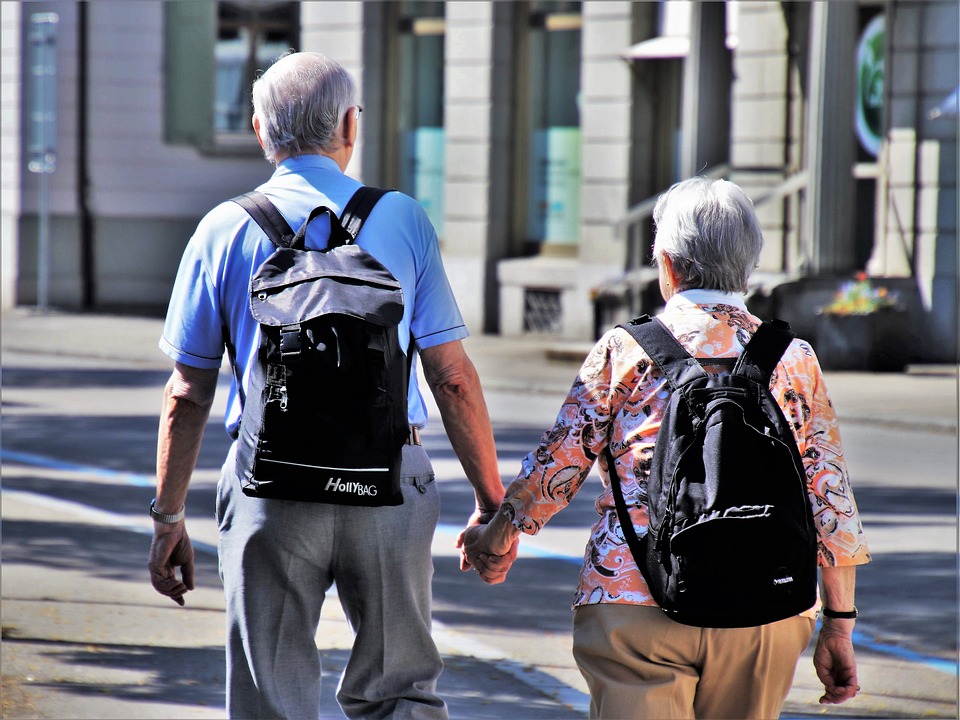
The residents of Ikaria, a Greek Island for whom the mythical Icarus is named, are among the healthiest, longest-lived people on Earth. Is it something in the water? How can American seniors achieve similar results?
There’s no great mystery to the Ikarians’ longevity. They eat a healthy Mediterranean diet (no processed foods!), have strong community ties, and are insulated from most modern conveniences. They also get plenty of exercise in ways Americans can’t imagine, such as milking goats, and enjoy a relatively stress-free lifestyle.
However, you don’t need to move to Greece to gain the same benefits. Here are 10 healthy lifestyle tips you can put into practice right where you are:
A nutritious diet can control, or even help prevent, many of the diseases associated with aging, such as high blood pressure, heart disease, Type 2 diabetes, and osteoporosis.
We generate less saliva and stomach acid as we age, so fruits, vegetables, and other high-fiber foods are more crucial than ever. At the same time, seniors don’t tend to feel thirsty the way they once did. If you become dehydrated, it makes digestion and elimination more difficult — and affects your brain. So keep a glass of pure water nearby and sip it all day long. You’ll be doing your body a big favor.
To increase your “sleep ability”, keep the bedroom cool, comfortable and quiet. Electronics should be kept out of the bedroom. This includes television. Many people watch TV before going to bed, but it’s best to do this in another room of the house.
Researchers at Harvard’s School of Public Health found that glaucoma, age-related macular degeneration, and diabetic retinopathy are linked to an increased risk of Alzheimer’s and other forms of dementia. While each of these eye diseases is serious in and of itself, the common thread linking them to Alzheimer’s is cardiovascular disease. Therefore, a healthy diet, exercise, getting enough sleep, and preventive screenings will help your eye health as well.
A Drexel University School of Public Health study found that seniors who were more socially connected had significantly better mobility than those who lived in less social communities. Socially connected seniors were also more likely to engage in health-enhancing behaviors, such as not smoking and getting recommended health screenings.
In England, one innovative police department has set up “chat benches” to encourage people to break through invisible social barriers and start talking. The idea is simple: a sign on certain park benches reads, “Sit here if you don’t mind someone stopping by to say hello.” It’s a natural icebreaker that may make a huge difference for lonely UK seniors.
Meditation, an excellent stress reducer, is also a boon for senior brains.
Our Commitment to Your Healthy Lifestyle
AgeWays is committed to the health and wellness of older adults in southeast Michigan and Metro Detroit. We support several senior health and wellness initiatives for people 60+ in the six counties we serve (Livingston, Macomb, Monroe, Oakland, St. Clair and Washtenaw).
Whether you’re looking for new ideas to help you stick to a diabetes management plan, a fall prevention class to keep you on your feet and active, or a program to help you manage chronic pain, we have a class and a program for you. Our classes are free (although we appreciate donations) and evidence-based, so you know they work. We offer classes at community venues throughout our region, in small-group settings led by leaders who have been thoroughly trained in the class model.
For more information about any of these programs, please download our complete list of upcoming AgeWays Health and Wellness Classes.